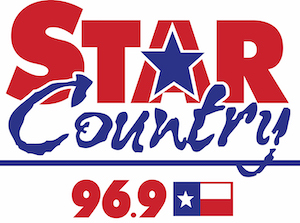
Although COVID-19 has altered many of our holiday plans, many studies predict an increase in contactless shopping experiences. According to a recent survey by Deloitte, 73% of shoppers plan to have items delivered, compared to 62% in 2019. Unfortunately, this means we can expect to see a rise in scammers looking for ways to capitalize on any trending situation. During the pandemic, they have taken advantage of those looking for cures and vaccinations, stimulus checks, and all aspects of online shopping. BBB warns consumers to be on the lookout for bogus phone calls, emails, and text messages which claim to be from a mail carrier or parcel delivery service.
How the Scam Works
You receive a call, email, or text from someone claiming to be your mail carrier or a parcel delivery service saying that they could not deliver a package, either one you allegedly ordered or one which a loved one has sent to you. They will then ask you to verify personal information or give them your credit card information to reschedule the delivery, or they will send you a link to verify the information. However, there is no package, and now the scammer has access to your personal and financial information.
“While many of us are looking for ways to adjust and cope with the pandemic,” Mechele Agbayani Mills, President, and CEO of BBB Serving Central East Texas, said. “Scammers are always looking for ways to take advantage of us.”
How to Avoid Package Delivery Scams
- Be wary of unsolicited communications. Package delivery companies will never contact you unsolicited via telephone call or text. Instead, if they can not deliver a package, they usually will leave a note on your door. They may follow up with an email, but most official communications will be within your secure online account.
- Track your packages. Always keep track of your online purchases and expected deliveries, request tracking numbers, so you will know when each packet is due to arrive. When you know what you are expecting, it will be harder for a scammer to fool you with a fake package delivery claim.
- Never give your personal information to strangers. Even when the communication is friendly or sounds professional, always use caution when asked for personal information. Hang up, look up the official customer service number, and directly contact the company to confirm their request. Whenever possible, use the customer service contact information or chat function within your account at the company.
- Never click on links in unsolicited emails or text messages. Links in emails or text messages can download malware onto your computer. Don’t click on links from people you don’t know or from companies with who you have not asked to contact you. Be wary of official-looking emails and texts; they can copy popular brands and their logos easily.
For more advice on staying safe and sharing your experience with a business, go to bbb.org. To report fraudulent activity or unscrupulous business practices, call BBB at (903) 581-5704 or report it via BBB Scam Tracker. To learn more about shipping fraud, see FedEx’s website, U.S Postal Service, and UPS’s online resource center. For more tips on how to protect yourself from scams, go to BBB.org/ScamTips.
BBB: BBB is a nonprofit, business-supported organization that sets and upholds high standards for fair and honest business behavior. Most BBB services to consumers are free of charge. BBB provides objective advice, free BBB Business Profiles on more than 5.3 million companies, 11,000 charity reviews, dispute resolution services, alerts, and educational information on topics affecting marketplace trust. Visit bbb.org for more details. There are over 100 local, independent BBBs across the United States, Canada, and Mexico, including BBB Serving Central East Texas, which was founded in 1985 and served 19 counties








 EastTexasRadio.com Powered by Ten Stations
EastTexasRadio.com Powered by Ten Stations




